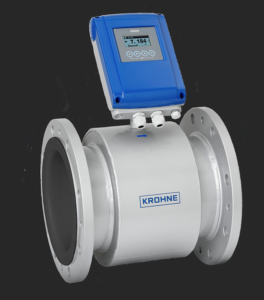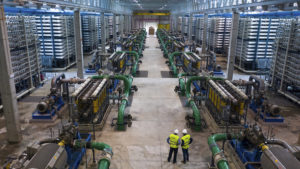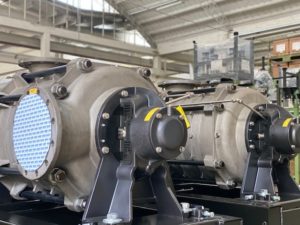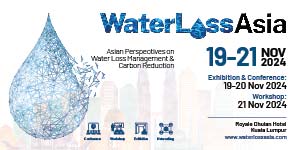Desalination Cross-flow Membrane Revenues Will Rise 50 Percent by 2017
In the next four years, sales of cross-flow membranes and equipment to desalinate seawater will rise by 50 percent to $4.3 billion/yr. This is the conclusion reached by the McIlvaine Company in its RO, UF, MF World Markets.
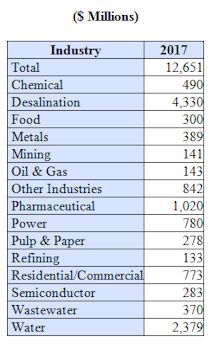
McIlvaine
Desalination will account for 34 percent of total cross-flow sales of $12.6 billion. This includes the replacement membranes and modules as well as the new equipment using microfiltration, ultrafiltration and reverse osmosis. The salt is removed in the reverse osmosis system but either microfiltration or ultrafiltration are used to pre-filter the seawater.
The U.S. market is poised to accelerate as cities want a more secure water supply. San Diego has purchased a system from IDE which will be the largest in North America. It will process more than 100 million gpd of seawater and produce more than 50 million gpd of drinking water. Desalination became attractive to San Diego based on reduced operating cost.
Early desalination membranes removed about 98.4 percent of the salt and required an extra pass through a second array of filters. According to IDE, they cost about $500 each and lasted three years. Today s filters extract 99.8 percent of salt, cost $350 and can last seven to eight years, making large-scale desalination feasible. Power-saving devices employ leftover brine to spin turbines which in turn run pumps, cutting energy use by 45 percent.
There are potentially other technologies in the wings which reduce desalination costs. Lockheed Martin has developed a special material that may not need as much energy for filtration as the present polymeric membranes.
Graphene is a substance made of pure carbon. Carbon atoms are arranged in a regular hexagonal or honeycomb pattern in a one-atom thick sheet. Graphene researchers won the Nobel Prize in Physics in 2010 for developing the wonder-material.
Lockheed anticipates that their Perforene filters will be able to provide clean drinking water "at a fraction of the cost of industry-standard reverse osmosis systems." Perforene is one thousand times stronger than steel, but still has a permeability that is about one hundred times greater than the best competitive membrane out in the market according to Lockheed. The company is targeting to have a prototype to test in a reverse osmosis plant by 2014 or 2015.
Source: The McIlvaine Company

